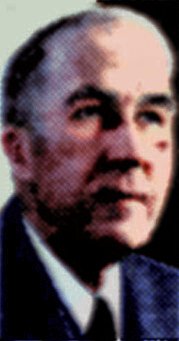The Pittsburgh Press (November 21, 1945)

Simms: U.S. should be thankful, Red critics notwithstanding
American citizens have freedom and plenty while Russians must follow patterned lives
By William Philip Simms, Scripps-Howard foreign editor
WASHINGTON – Tomorrow is Thanksgiving.
What have we to be thankful for?
Foreign observers say we should be profoundly grateful that we are Americans, that we live in the United States and that ours is truly the land of freedom and plenty.
We are being asked to give another $1,350,000,000 to feed the starving of other lands. We never have been deaf to such a call.
That will make our share $2,700,000,000 as against a mere $900 million from all the rest of the combined United Nations.
Why is our share so large?
Because our national income, on which UNRRA donations are based, happens to be three times that of all the other 50 members combined – including Soviet Russia.
Communist propaganda continues to preach how benighted we are, economically, politically, socially and otherwise and how much better things are in Russia.
Yet our $2,700,000,000 contribution to UNRRA – like the nine billion dollar lend-lease to Russia, the $19 billion to Britain, and so on – comes from American taxpayers, the majority of whom are workers.
Communists and fellow travelers are painting a dark picture of the lot of the returning G.I. He is coming home to strikes, unemployment and other woes.
In Russia, we are told, there is nothing like that. And they are right.
When soldiers leave the Red Army, they take whatever job is offered and like it. They observe a discreet silence regarding the high cost of living.
There are no strikes because workers know better.
Unions, as they are known in the United States, do not exist.
There is no collective bargaining.
Work is mostly piece-work.
Workers who loaf get little or no pay, and if they lag habitually the police may take a hand.
A worker can’t quit his job and take another, nor move to another town, without official permission.
If he does, he loses his card without which he may find himself foodless and homeless.
Rights of Americans
The American worker is obliged to work for no one.
He can bargain for his pay.
He can strike, picket, hold mass meetings.
He can hitch a trailer to his car and set out for anywhere he fancies. He can go when he pleases, and stay as long as he pleases.
If he wishes to quit the machine shop and open up a haberdashery, filling station, or grocery store, or study law, enter the ministry or some other profession, that’s his business.
Or, like Henry Ford, he may start a factory of his own.
The American worker may own his home.
He has more radios, telephones, electric refrigerators, washing machines, autos and other gadgets than all the rest of the world.
His market basket on Saturday night holds twice as much as the British worker’s, three times the pre-war German’s, four times the pre-war Italian’s and seven times the Russian’s.
He dresses better, has more and better schools and several times as much insurance. His bank deposits are larger, and so on.
Read what we please
Here in America, we are free to read any book or paper we like, from extreme left to extreme right.
Our press associations bring us full coverage of world events, save from areas controlled by totalitarians.
Religion is free.
Likewise speech.
We can nominate and vote for anyone we choose and advocate any cause our consciences approve without quaking when there is a knock at the door.
Our country isn’t perfect.
Nobody claims it is.
But, youngest of all the great powers, the United States – under a free system defined by Lincoln as of, by and for the people – has carried individual human dignity farther, and done more for the common man all round than any other system of government ever devised.